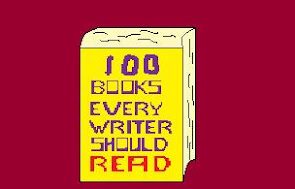Thanks to all who've already contributed to the
100 Books Every Writer Should Read . Keep spreading the word and sending your lists of 10. (Btw, there are already patterns emerging. The first 3 lists all contained a particular book which I haven't read. lol)
As you know, I headed out to the coast on Monday to help in the tsunami. I went through the town church.
MONDAY
Our first stop was a church in Miyako, a city about an hour and a half drive South of here on the coast. We spent most of the afternoon walking around the neighbourhood with the Tokyo YMCA spreading limestone dust on the ground in the roads and in some of the old folks' houses. The guys helped another old lady clean up her shop. The population in the countryside is over 33% senior citizens.
MIYAKO

I don't even know how this car got in here. There were houses on all 4 sides...

70 footer parked in the midle of an intersection.

My neighbour after we'd finished spreading around the chalk.

Chalky me, pointing out the mark on the kindergarten van where the water went up to.

Overtaking a boat in the road.

Japan Self Defense Force hard at work.

After work, we headed down to the bay with the group from Morioka (prefectural capital) and Aomori, the prefecture above us. This two story building was flipped and broken in two.

These pics were taken from the top of the sea wall.

The road disintegrated in some areas.

This log landed on top of the sea wall ladder, about 30 ft above sea level.

Boats overturned and run aground.

Stitch.. Every time I saw a toy or doll I wondered about the kid who used to own it.

The seats in the lower left corner probably came from the baseball stadium in the upper right.

Piles of debris on the sides of the road. The crazy thing about Miyako is that you could draw a line between the devastated area and the unaffected area. Our driver told us as we got to the train station, "As soon as we cross this intersection, you will see the damage."

I joked that Toyota must be glad they got the high ground.

Bad joke. Mitsubishi, Daihatsu and Suzuki's other outlet were not so lucky.

Cars on Daihatsu's lot.
The girls spent the night at the kindergarten and the boys at the church. The area the church was in didn't have power back yet, though.
TUESDAY
In the morning we had breakfast and set out for Kamaishi, passing through Yamada and Otsuchi.
YAMADA
Yamada was hit harder than Miyako. It was a tiny bit closer to the epicenter and it's a little lower elevation.

Devastated home store.

Boats on the side of the road.

We think the red spray paint was the army's markings, but we're not sure what they meant.

A boat on a store roof.

A house on its side in the road.

A section of the sea wall crumbled.

The river banks.

Dressed for a day of hard work. The hotel behind me had it's first 2 floors devasted, but everything above that was fine.
OTSUCHI

Debris mountains on the river bank.

The Mitsubishi sign, but no building and no cars.

The second story of a house. This was actually pretty common. I think the first story probably crumbled with the pressure, but the 2nd stories floated.
There was a stretch of impassable road on Route 45, so we took the expressway to Kamaishi.
KAMAISHI
The plan was to clean the church out so there'd be a place to store donated goods and for volunteers to camp out. There is still no power in the area and the bathroom doors all came off, which meant the girls had to use the porta-potties at the hospital next door. The stove was destroyed so we cooked on camp stoves with portable spray cans of gas.

The kitchen at the church after we'd been cleaning for an hour. The tsunami was much taller here. Even though we were a couple blocks in from the coast, water reached the second story of the building.

A car parked on top of a roadside fence.

The base of operations for Police and Red Cross. JSDF was camped a little further on at a Junior High School School is out right now. It's actually the end of the school year. The earth quake happened on the last day of school.

It is life as usual just a little further on. The devasted areas in the towns we visited extended less than a mile from the shore.

We spent the night at a church in Tono, which is inland of Kamaishi. (Apparently it takes 5 people to fill up the can with gas. We were travelling with cans of gas because of the ridiculous lines in gas stations. I think the priests and volunteers coming in from outside the area must have brought gas with them.)
WEDNESDAY
KAMAISHI
We headed back to the church in Kamaishi after breakfast and a short Thanksgiving service.

Somehow I didn't notice this car wrapped around a pole on the first day. It was right across the road from the church.

The license plates of cars which had been removed. You may not be able to see it, but it also includes where they were found, eg. 'in a pole in front of the church.'

It was only after the second full day at the Kamaishi church that we realised that the stained glass was a depiction of the Great Flood. Eerie.

The kitchen after 8 hours of being cleaned by 14 or so people. (All the people in my volunteer group. They was also a group from Hokkaido, but they were working on the building next door. As well as a group of American missionaries who live in Nagano, who were working with the donated stuff.)

Final meal of the trip at a ramen shop just before getting on the interstate at Towa.
The trip left me with a weird mix of feelings. I don't think anyone could come through that much devastation without getting a little depressed. But I was also pleasantly surprised to meet priests and Christians from 5 prefectures (Hokkaido, Aomori, Iwate, Tokyo, Ehime). Christians represent less than .1% of Japanese population.
I was happy to see the spirit of the people in the area. Everybody was cleaning their homes or stores or helping someone else clean theirs. Everybody was smiling. Even though many of them had only the frames of their buildings left.
And even though I feel weird about it, I actually had a good time. You can't really spend 2 days scraping mudd out of the insides of pianos and organs and stoves and not make friends.
So, there you have it. My 3 days on the coast.


































































